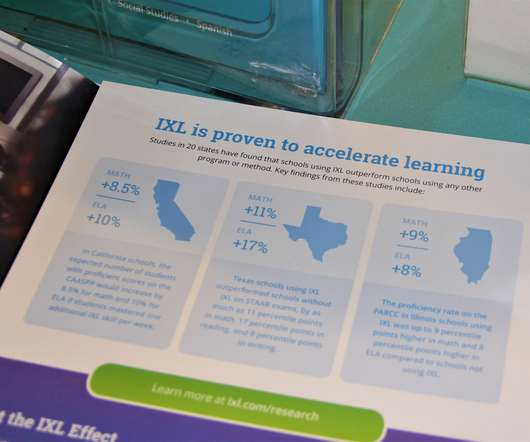U.S. K-12 Educational Technology Policy: Historical Notes on the Federal Role
Doug Levin
APRIL 21, 2016
Federal Program Evaluations and Program-Related Reports: The First-Year Implementation of the Technology Literacy Challenge Fund in Five States (American Institutes for Research, 2000). ” How would the program operate? FY 1999: $425,000,000 (President Clinton’s request: $475,000,000). FY 2001: $450,000,000.













Let's personalize your content